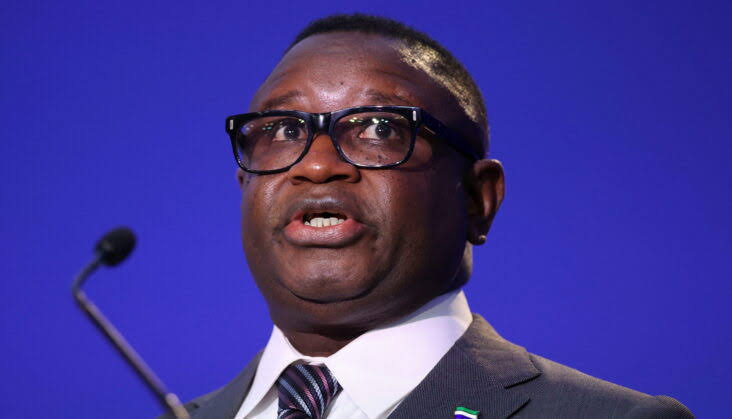THE president of Sierra Leone on Friday accused the United States of pressuring him to interfere in his country’s June 24 election count, a statement in stark contrast to the concerns Washington has leveled regarding the fairness of the poll.
“When the elections were at the height — of calling the results — this is when the problems started,” President Julius Maada Bio said during a speaking event at American University in Washington.
The Election Commission of Sierra Leone (ECSL), he said, “had done all their calculations, collations, all the processes. I was now requested to stop them from calling the result by the United States. So I don’t know who is accusing who of interference.”
“They are an independent, semiautonomous body,” the president said of the ECSL. “I declined, and I said I have never called this institution, I am not going to call them now.”
Bio, 59, was reelected in a disputed vote criticized by both the opposition and international observers.
n a joint statement following the election, delegations from the United States, European Union, France, Ireland and Germany said they shared the concerns of national and international observers “about the lack of transparency in the tabulation process.”
Ahead of the poll, some thought the country’s soaring inflation and dire economic straits would give the opposition an opening. Bio won with 56.17 percent of the ballot, just above the 55 percent needed to avoid a runoff.
On August 31, the State Department announced visa restrictions on those “believed to be responsible for, or complicit in, undermining democracy in Sierra Leone,” including through vote rigging or intimidation of election observers.
The names of those targeted were not made public, and visa decisions are confidential under US law.
“Elections are always contentious issues, no matter where they happen in the world, including the United States,” Bio said during the event at his alma mater, where he earned his Bachelor’s and Master’s degrees following his move to the United States, after handing over power from the military junta he briefly led to a democratically elected government in the 1990s.






